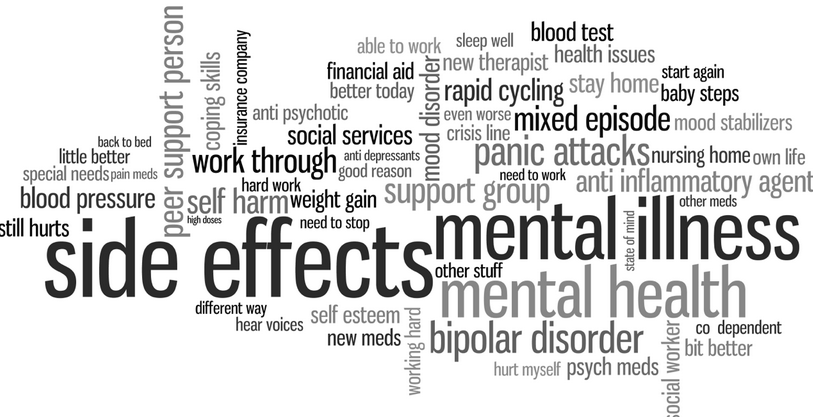Seeing past the stigma
November 12, 2014
After mass shootings and outrageous violent outbreaks such as Columbine, the Aurora Colorado theater shooting, Sandy Hook and the Slender Man stabbing, a common question arises regarding the link between mental illness and violence surfaces.
To separate the facts from the social stigma of mental illnesses, society must understand “Violence is not a product of mental illness. Violence is a product of anger,” Laura Hayes, psychologist and writer for Slate Magazine, said. Although many studies suggest that there is a connection between mental illness and violence, Dr. Hayes explained how the relationship is exaggerated among the minds of the general public. Dr. Hayes clarified that most people with a mental illness are not violent; they can be violent, but violence is not a characteristic of mental illness.
“At the high school level, the most violence I see is self inflicted (suicide or directing violence towards one’s own body), but we did have a student here who graduated several years ago who killed both his parents, and he was severely mentally ill,” Mr. William Woessner, Homestead psychologist, said. Part of the problem is that mental health patients lack supportive services due to social stigmas placed on them. “Most people do not get enough support, but communities without a stigma have increased support,” Mr. Woessner said.
“One in five people suffer from a mental illness, which is 20 percent of our population, but yet only 4 percent of the total healthcare budget is spent on our mental health,” according to teenmentalhealth.org.
Not enough of the budget is spent on mental illness when examining the number of patients. A social stigma can prevent families from seeking out support; however, it is most important to find support groups to help cope with a mental illness.
When interviewing a teenager from Homestead who wished to remain anonymous who has dealt with a mental illness, the student said, “The best way to cope with a mental illness is definitely getting your mind off of it, whether it is hanging out with friends, going to a football game or journaling your thoughts onto paper. This has definitely helped me and many others cope.”
“There are physiological differences and changes in the brains of people with disorders, but blaming mental disorders for violence is much like chastising someone with heart disease. It just isn’t logical,” Mr. Woessner said. It is believed now that mental illnesses are more genetic, but can be triggered by changes in the environment, such as a divorce, death or breakup. “If you are surrounded by a person with substance abuse disorder, of course you will become more prone to that disorder, but if you never use the substance, you will never become addicted,” Mr. Woessner said. People who are genetically predisposed to mental illnesses are only at a higher risk in developing a mental illness in comparison to others with no predisposition.
With the development of new technology, medical examiners are now able to discover differences in the biological makeup of mental illness patients. The New York Times article, “Visualizing Schizophrenia” for instance, states a person who has schizophrenia has an excess of fluid in their frontal lobe. The frontal lobe is responsible for movement, decision-making, problem solving and planning, which are all impaired in a person who has schizophrenia. Brain scans such as the one of a schizophrenic are being studied to locate differences between people diagnosed with a mental illness compared to those without.
The main noticeable symptom of a person with a mental illness is that a person might have disturbing changes in his or her daily life. For example, “There will be a difference in their eating or sleeping patterns, and they may withdraw from friends,” Mr. Woessner said. This could be something as simple as a change in class environment. “I have noticed that for me, the biggest issue is test taking. It has taken some time to get used to, but I feel as if I found the most approachable way to cope,” the anonymous student said.
The student continued, “I think my mental illness has sometimes made me become more frustrated rather than violent, but I would only contribute that to the two and a half years spent changing medication and doctors, because that could lead anyone to become frustrated.”
Society may benefit from being more aware of mental illnesses and how support can be provided. People tend to pay more attention after a scene of violent behavior, when the issue should be anticipated and addressed prior to the violence. “Educating yourself about the illness is really the foundation for support,” Margarita Tartakovsky, Psych Central writer, said. Certainly, there are varying degrees of mental illnesses, which affect your ability to function in daily life. And, if not treated, symptoms may worsen and possibly lead to violent behaviors if coping strategies and supportive services are not available to these individuals.
